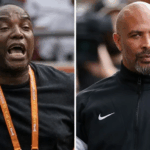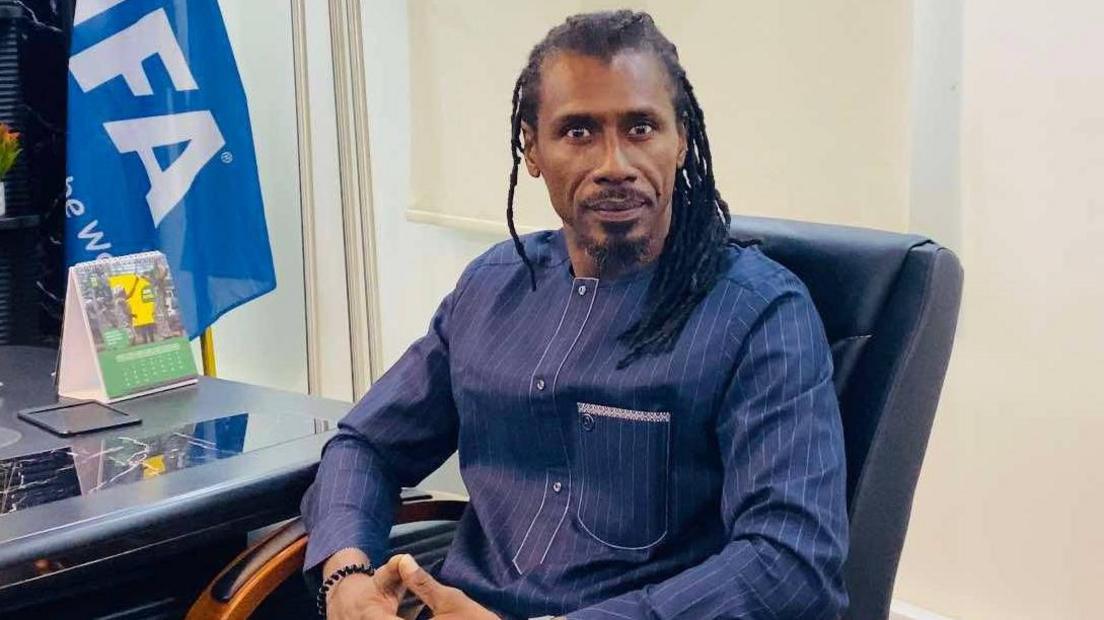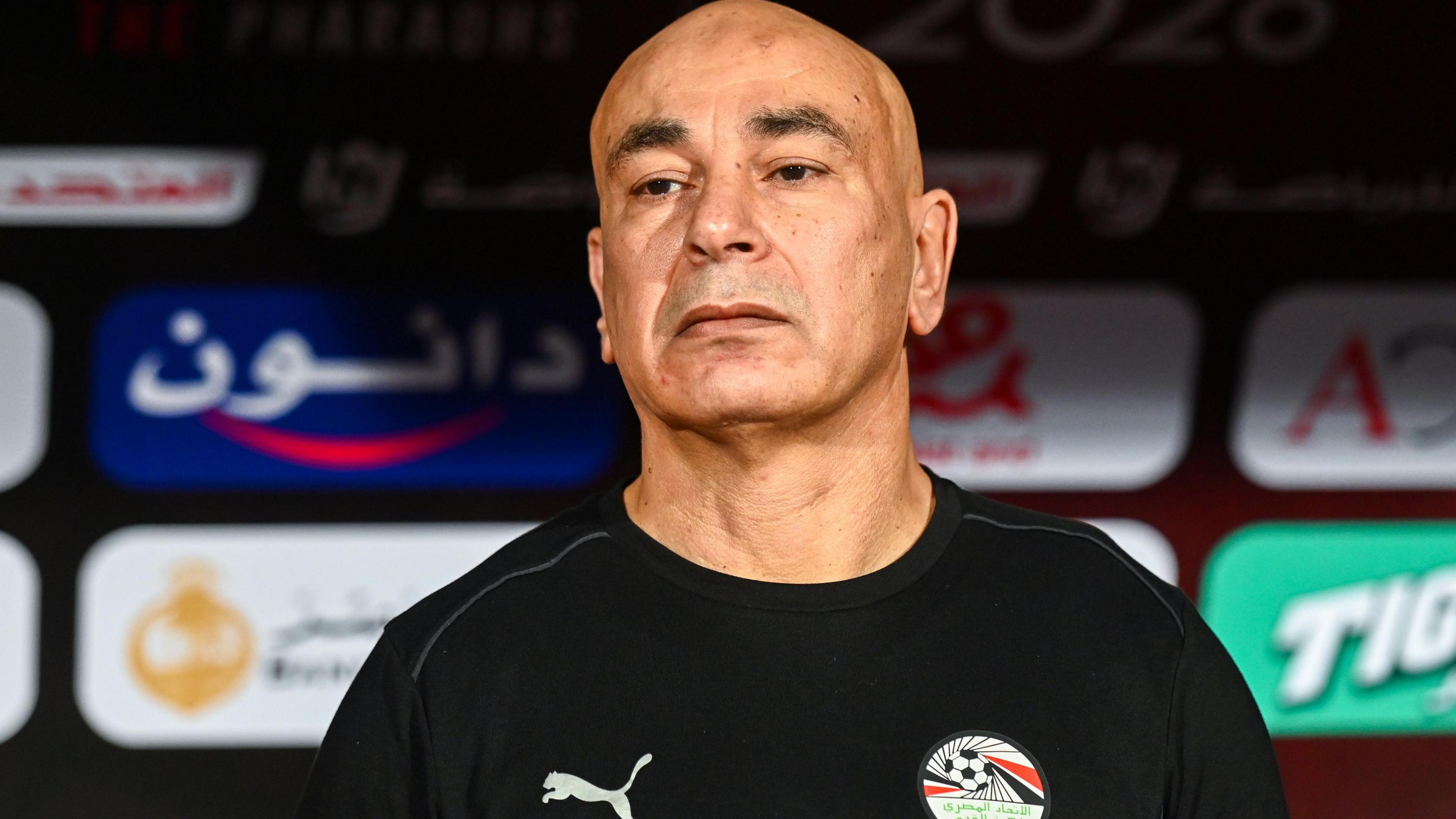
As the African qualifying for the 2026 FIFA World Cup reaches its conclusion over the next six weeks, a growing cadre of homegrown coaches are under the microscope.
Heading into the September international window, 24 of the 53 men’s sides on the continent ranked by the world governing body Fifa have an African coach.
And, in a new wave of faith in the competence of local talent, even when African nations look outside their borders, they are increasingly determined to appoint from within the continent.
Malian Eric Chelle and South African Benni McCarthy, in charge of Nigeria and Kenya respectively, are the stand-out examples, while Libya appointed former Senegal boss Aliou Cisse with much fanfare on a contract that reportedly made him the second-highest paid African coach in history.
With many national federations, for so long, seemingly beholden to foreign coaches, this change of tack has been greeted with positivity.
“In Africa, we have a lot of good coaches and we deserve these posts,” Chelle told BBC Sport Africa.
“I think we have improved. I’m happy if some countries give us a chance to show to the world how we [can] do our job.”
A debate ‘as old as football’
The backing for African coaches dawned when Algeria beat Senegal in the 2019 Africa Cup of Nations (Afcon) final, with both nations led by homegrown legends.
Djamel Belmadi and Cisse had been influential midfielders for the Desert Foxes and the Teranga Lions, respectively, and their success appears to have lit a fuse.
The two Afcons since have also been won by a coach of local extraction – with first Cisse and then Ivory Coast’s Emerse Fae lifting the trophy, while the number of European coaches at the tournament has dwindled.
At the 2022 World Cup, Walid Regragui was the major success story in recording a first for the continent by leading Morocco to the semi-finals.
However, arguably the biggest win for Africa in Qatar came from the fact that all five of its representatives were led by an indigenous coach, and all won at least one match.

For Cisse, the discussion on the relative merits of African and foreign coaches “is as old as football itself”.
Yet the 49-year-old accepts that investment in coaching programmes by the Confederation of African Football (Caf) and world governing body Fifa has helped raise standards.
“African coaches are developing more and more with time,” he said.
“Football now is universal and race, colour or nationality doesn’t make a difference. It’s all now about qualities and competency.”
‘White guys are coming for our money’
Where once indigenous coaches felt “powerless and hurt”, as former Mali boss Mohamed Magassouba said in 2022, they are now being allowed to make mistakes and grow.
McCarthy, who joined Kenya in March, has seen a shift in mindset from federations.
“We’ve dedicated our lives to the game, but to become a coach or be involved in leadership we [were] not fit enough or good enough for those kind of roles for whatever reason,” the 47-year-old ex-Porto and Blackburn striker told BBC Sport Africa.
“In our own continent, people are [now] believing that we are as good as we can be, instead of always relying [on] the Europeans.”
The advantages of appointing African coaches include extra motivation, emotional investment, and intimate knowledge of the culture and expectations of their own people.
“The reality is we need to know how the African [players] think,” Chelle said.
“If you put a Nigerian guy in Vietnam, it will be difficult for him. The same in Europe.”
A simpler benefit is the fact that, on average, appointing an African is cheaper.
History also suggests European coaches have been less concerned about the long-term goals of their employers.
“The white guys are coming to Africa just for the money,” Stephen Keshi famously told the BBC in 2013, the year he led Nigeria to Afcon glory.
“They are not doing anything that we cannot do.”
Yet Chelle warns that coaches from the continent cannot afford to rest on their laurels.
“We need to improve the preparation of the game and the performance of players,” the 47-year-old said.
“We need to work tactically and technically and bring something more professional.”
History on the horizon?

But qualification is a zero-sum game – for one African coach to succeed, many others must fail.
Certain decisions have proved inspired in the race to reach the 2026 World Cup.
Bubista, in charge of Cape Verde since 2020, has the Blue Sharks in contention for a historic qualification ahead of giants Cameroon, who are helmed by Belgian Marc Brys.
Meanwhile, Egypt’s decision to break with their tradition of dour, defensive overseas coaches by appointing legendary former national team striker Hossam Hassan has resulted in them being five points clear and primed for only a third World Cup appearance.
Yet for Senegal, the decision to replace Cisse with his assistant Pape Thiaw coincided with a downturn in attacking potency, having only scored eight goals in six Group B matches.
The West Africans may have recorded a first-ever win over England in June but are locked in a three-way battle with DR Congo and Sudan for a ticket to the finals.
Great wages, faltering starts
Even a big-money outlay on an African coach does not guarantee results.
Cisse, reportedly on a monthly salary of $83,000 (£62,000), had a rocky start with Libya, taking one point from an available six in Group D in March.
According to Nigerian officials, Chelle’s unique selling point was his knowledge of African football.
Hired on $600,000 (£448,000) a year, he started with a win over Rwanda, but was criticised by fans and media following a draw with Zimbabwe.
Maximum points are required against Rwanda and South Africa this month.
Elsewhere, McCarthy has earned praise for his attacking ethos with Kenya, but his initial results mean the East Africans can be discounted entirely from qualifying.
Meanwhile, one Football Kenya Federation official rubbished reports the former Manchester United first-team coach was earning $62,000 (£46,300) a month.
With four World Cup qualifying matchdays remaining, much could change as the pressure mounts.
But, having had a great deal of faith invested in them, who ends up in the nine guaranteed qualifying slots could open doors for more African coaches – or see them going back to being overlooked again.
African coaches in charge of own country (18)
Brama Traore (Burkina Faso), Bubista (Cape Verde), Eloge Enza-Yamissi (Central African Republic interim), Hossam Hassan (Egypt), Juan Micha (Equatorial Guinea), Thierry Mouyouma (Gabon), Otto Addo (Ghana), Emerse Fae (Ivory Coast), Thomas Kojo (Liberia), Walid Regragui (Morocco), Chiquinho Conde (Mozambique), Collin Benjamin (Namibia), Pape Thiaw (Senegal), Ralph Jean-Louis (Seychelles), Mohamed Kallon (Sierra Leone), Yusuf Ali Nur (Somalia), Dare Nibombe (Togo), Sami Trabelsi (Tunisia)
African coaches in charge of another country on continent (six)
South Africa’s Bennie McCarthy (Kenya), Senegal’s Aliou Cisse (Libya), Zimbabwe’s Callisto Pasuwa (Malawi), Morocco’s Ezzaki Badou (Niger), Mali’s Eric Chelle (Nigeria), Ghana’s Kwesi Appiah (Sudan)